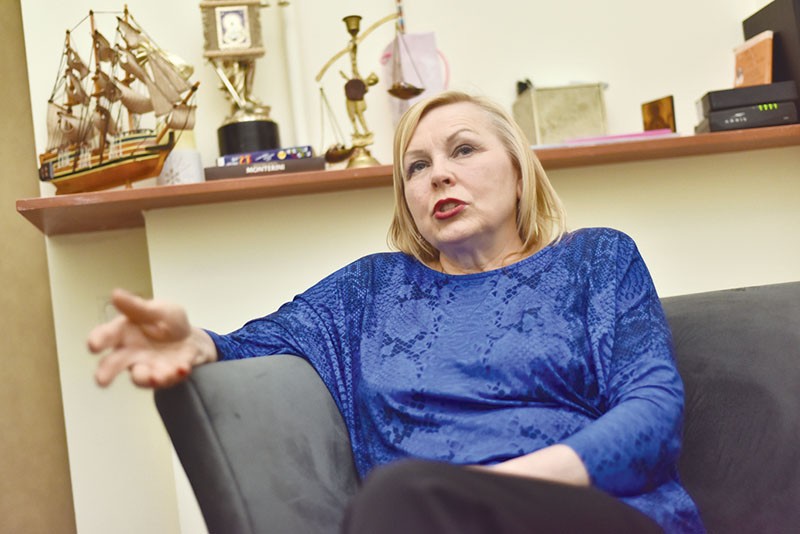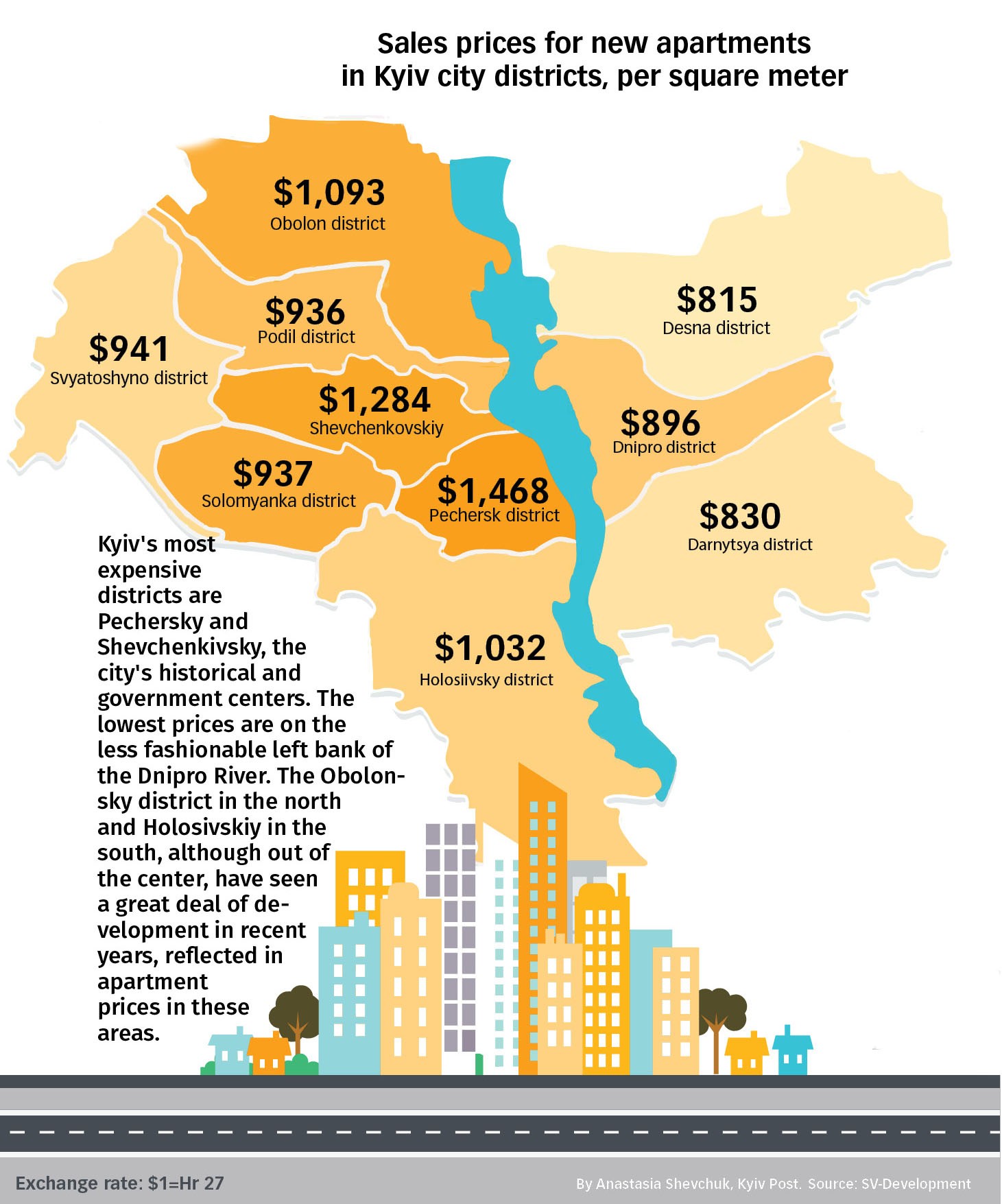While it’s not difficult to become a real estate agent, “only the fittest stay in the profession,” says Halyna Teryayeva, as she sits on a sofa in her real estate agency Terezy (Scale) in Kyiv.
Teryayeva, 55 and brimming with self confidence and generous smiles, knows what she is talking about. She has been involved in the real estate business for 25 years, rising from agent to agency owner.
“I’ve succeeded because I love my job. I’ve always enjoyed the business and its intense schedule, which stopped me from falling into depression and helped me remain afloat in the difficult moments in my life,” she says.
Way to success
Teryayeva compares her job to being on a roller coaster. Although she cannot remember all of her professional ups and downs, she recalls the theft of a big sum of money as her biggest failure.
“In the early 1990s, three million karbovanets (around $600) were stolen, and I never got my money back,” she recalls. “I cried the entire night then, but this situation also gave me resilience to stress — a necessary quality when working as a real estate agent.”
Teryayeva’s real estate agency Terezy, which rents and sells apartments in Kyiv’s central districts, has 10 employees. She is proud to have the employees of foreign embassies and international firms like PwC or EY among her clients.
“Foreigners are picky clients who appreciate good service,” she says.

Halyna Teryayeva, owner of Terezy (Scales) real agency in Kyiv, speaks on May 15 about the real estate profession in Ukraine. (Oleg Petrasiuk)
Teryayeva’s path to becoming a successful businesswoman was not easy. After she graduated from the Kyiv National University of Construction and Architecture she worked as an engineer. Then in the early 1990s, the Soviet Union collapsed, and the Ukrainian real estate market started to form. She quit her job and became a real estate agent because she needed to earn more money.
In the early 1990s, real estate agencies worked as mini-developers, buying apartments for $2,000 per square meter, renovating them and then selling them on for $4,000 per square meter, earning $10,000 or more per apartment.
Teryayeva worked hard, frequently until late in the evening.
“I didn’t sleep much. I did everything — I looked for the apartments, I cleaned them, I learned how to pay taxes, I learned how the banking system operates, and I studied English,” she says. Teryayeva believes her constant learning helped her to stay successful while other real estate firms shut down.
Good relations
Teryayeva’s own experience has inspired her younger daughter, 23-year-old Anita Solovei, also to work on the real estate market. Solovei owns a small hotel in central Kyiv and is engaged in short-term apartment rentals. She says that it is mainly women engaged in the profession.
“One has to be sociable, very persistent and pushy,” Solovei says, adding that intuition is another important factor in the job of a real estate agent. “Some girls can tell if a client really wants to buy something, or if he has another real estate agent. If a client is reliable, a real estate manager will by all means try to keep them.”
As well as knowing clients well, it’s best to have good personal relations with other agents on the market, both Teryayeva and Solovei say. Teryayeva says that many of her employees have launched their own real estate agencies, but that she has “never treated them as rivals.We often share information with each other.”
Solovei agrees, saying that “if you have bad relations with your colleagues from other agencies, it means you’re not going to find out the
latest news about new apartments on the market,” she says. Another no-no is stealing a fellow real estate agent’s clients. “There should still be some decency,” Solovei says.

Market and salaries
In Ukraine, the real estate agency representing a buyer and a separate agency for the seller each take a 2.5 percent commission from the sum of a real estate transaction. Of that, the agency takes 60 to 70 percent, while the agent who brokered the deal gets the remainder of the money. Real estate agents don’t receive salaries, but work on commission. Teryayeva says that the best agents in Kyiv can charge up to half of the agency’s 2.5 percent of the real estate transaction.
Before September 2008, when the global fi nancial crisis reached Ukraine, a real estate agent could earn up to $5,000 a month, while now an agent typically makes around $1,000, Teryayeva says, adding that the crisis also forced a lot of agencies to shut down.
“Many agencies I knew disappeared because their owners were not flexible,” Teryayeva says. “For example, instead of trying to rent out
office space at a reduced price, they could have remodeled it and let it out as an apartment.”
Despite the current economic difficulties, Teryayeva believes that the Ukrainian real estate market has great prospectse. She says it’s the best way to invest money as foreigners know.
“The Turks, Germans and Canadians readily buy Ukrainian real estate because it’s cheap, utility bills are low, and it’s always profitable to rent out,” she says.
But even after so many years on the market, Teryayeva says she still has lots to learn. “I?still can’t say I know everything about the real estate market: Now I’m learning from my daughter how to use social networks (for business),” she says.
